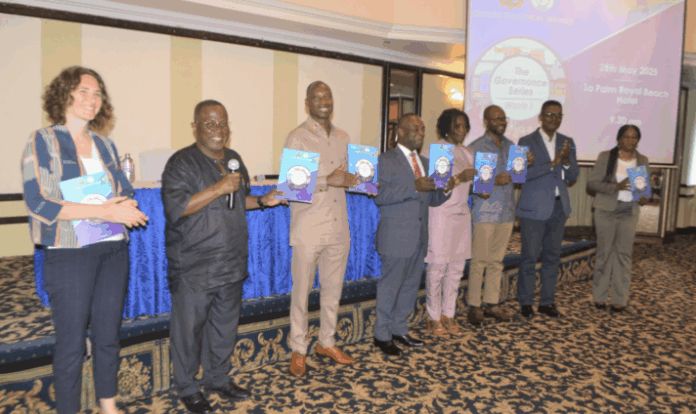A new governance report from the Ghana Statistical Service (GSS) has revealed that males are more likely than females to engage in bribery when interacting with public officials, with urban dwellers also more exposed to such practices than rural residents.
Presenting findings from the Governance Series Wave 1 Report, Mr. Omar Seidu, Head of Social Statistics at GSS, disclosed that 55.7 per cent of the population had contact with public officials between January and December 2024. Of those, 18.4 per cent admitted to offering gifts—mostly money—to facilitate services.
The report ranked the top ten public institutions perceived as prone to bribery. These included:
-
Police Motor Transport and Traffic Division (MTTD) – 61.0%
-
Police General Duties – 46.7%
-
Police Criminal Investigation Department (CID) – 37.9%
-
Traffic Management Authority/City Guard – 34.4%
For persons with disabilities, 21.1 per cent reported having given gifts, with even higher rates among those with physical impairments (40.1%) and visual difficulties (32.5%).
Regionally, the highest bribery incidences were recorded in Greater Accra (22.0%) and Ashanti (18.1%), while the lowest were in Savannah (1.0%) and North East (1.1%).
The report also exposed governance challenges. In 2024, over 70 per cent of Ghanaians felt the political system provided little or no opportunity for ordinary people to participate in decision-making.
Government Statistician, Dr. Alhassan Iddrisu, emphasised the importance of evidence-based governance.
“Governance should be shaped by the voices of citizens, and policy reform must be driven by robust, inclusive, and representative evidence,” he said.
He reaffirmed the GSS’s commitment to delivering credible and consistent data to aid national development efforts.
Chairman of the National Development Planning Commission, Dr. Nii Moi Thompson, welcomed the report as timely, stating that corruption remains a major impediment to Ghana’s development.
“Addressing this issue will pave the way for sustainable progress,” he added.
Deputy Clerk of Parliament, Dr. Gloria Sarku Kumawu, noted the report offers valuable insights for correcting governance lapses, while Dr. Evans Aggrey-Darkoh, Head of the Office of the Head of Civil Service, stressed the need to build public trust through improved perceptions of governance.
Mr. Samuel Harrison-Cudjoe, a Programmes Officer, expressed concern over the impact of partisan politics on civic engagement, observing that many citizens avoid participating in community activities due to feelings of exclusion.
The report was compiled using data from over 20 public institutions and a nationwide survey conducted from January 2 to 20, 2025. The survey reached 7,248 respondents across 15,400 households, based on the 2021 Population and Housing Census framework.
It assessed public sector governance performance for the period January–December 2024, focusing on inclusiveness, responsiveness, and corruption. The findings align with Sustainable Development Goal 16, which promotes peace, justice, and strong institutions.
Source: Ghana News Agency (GNA)
ALSO READ:



